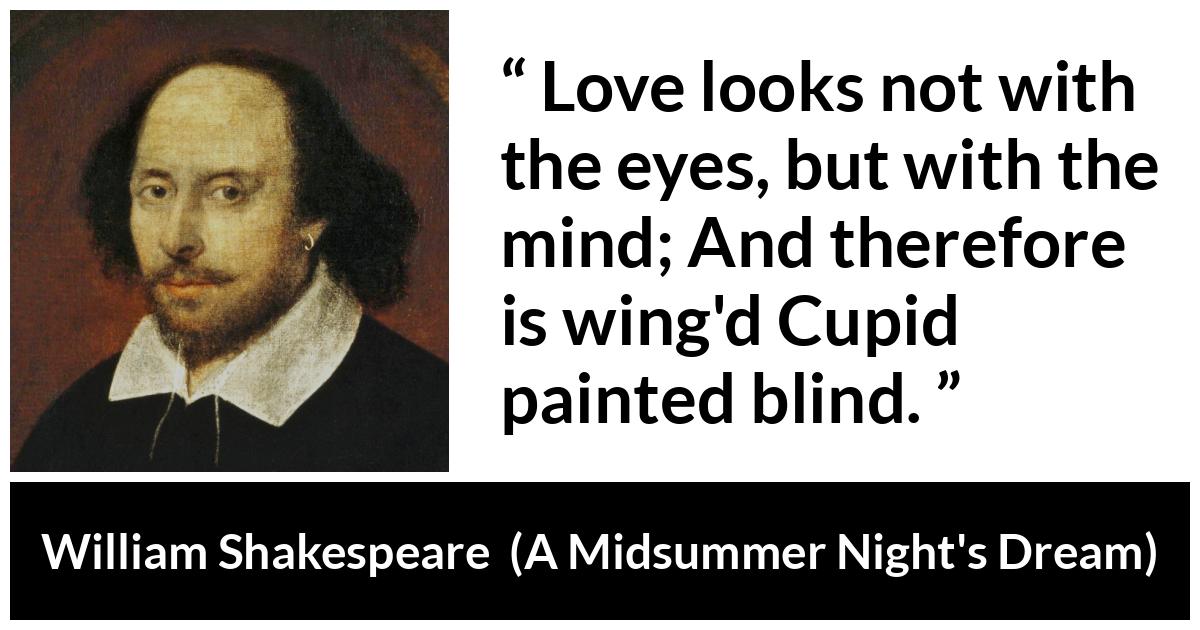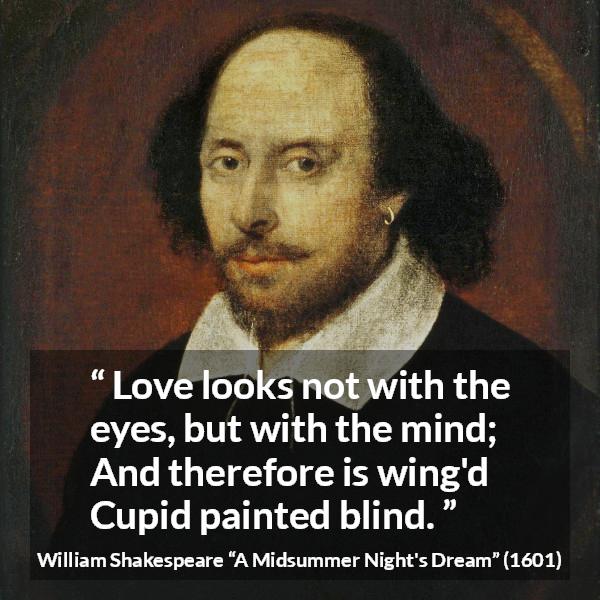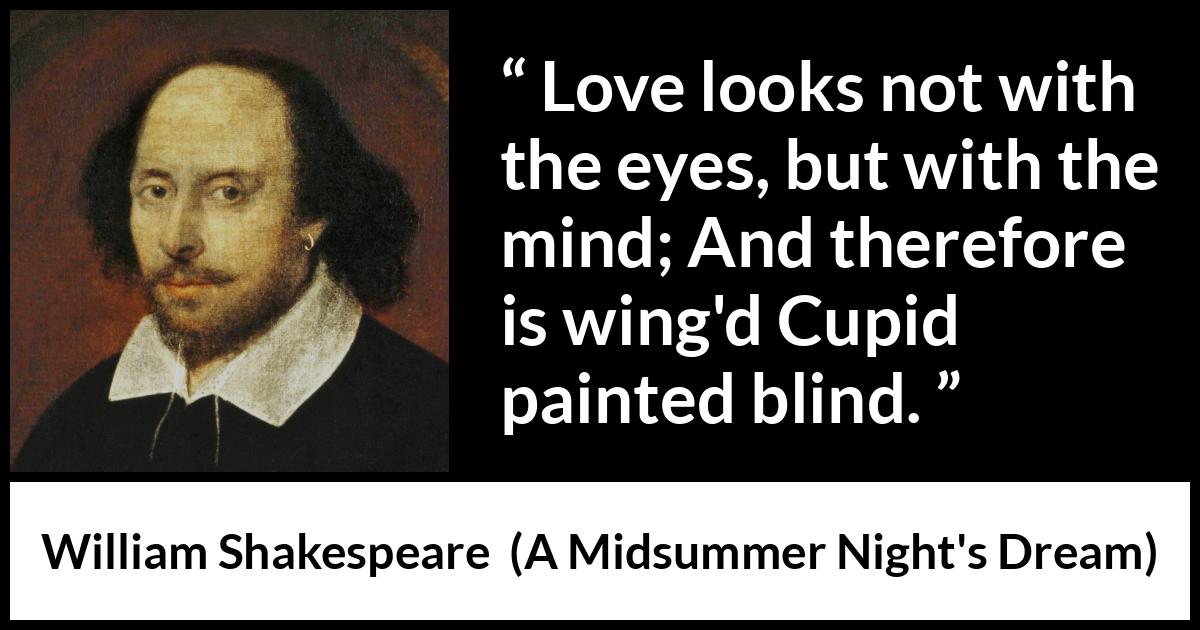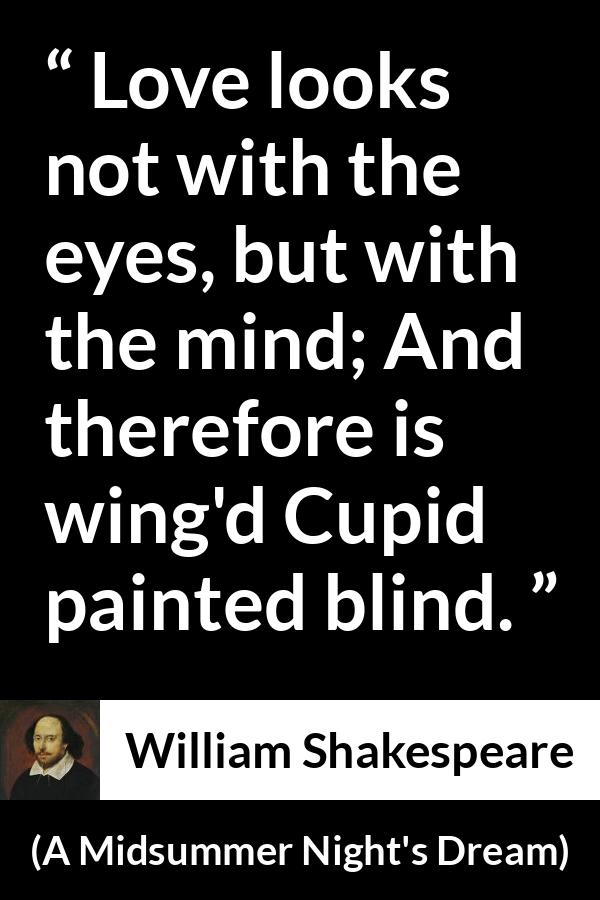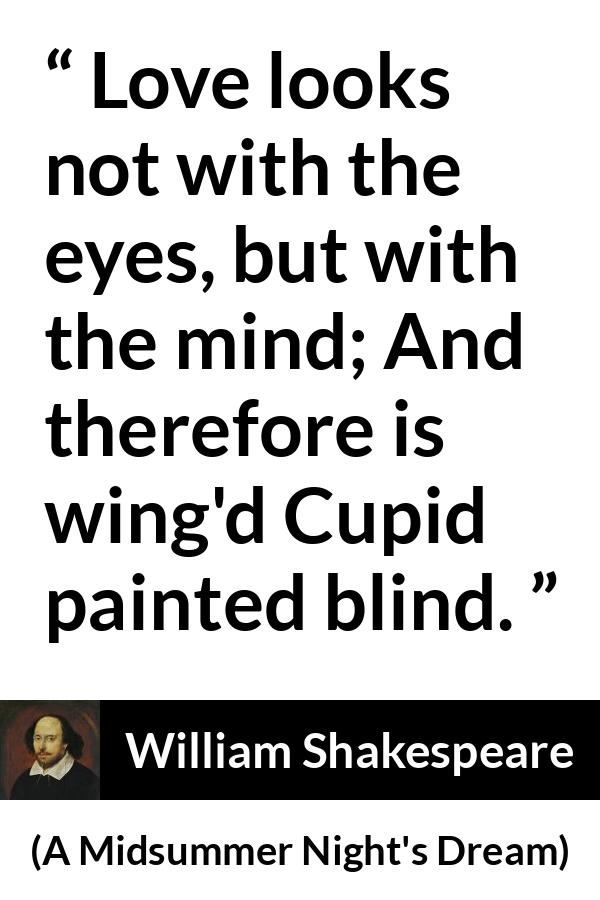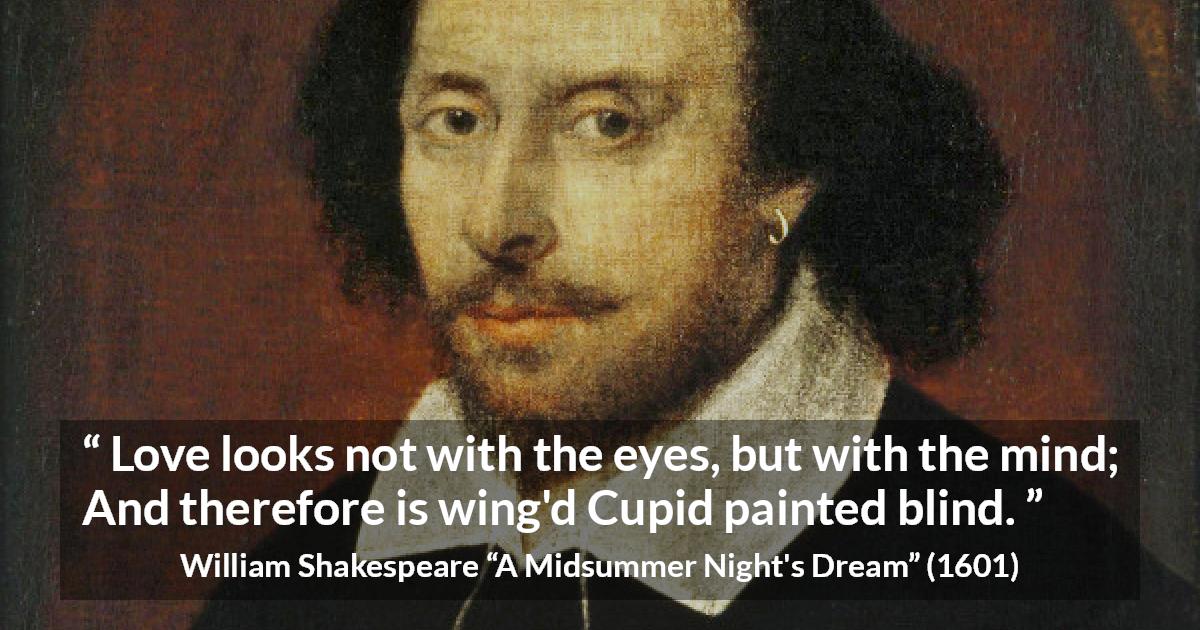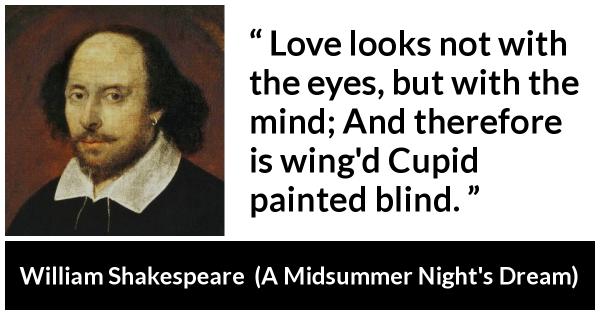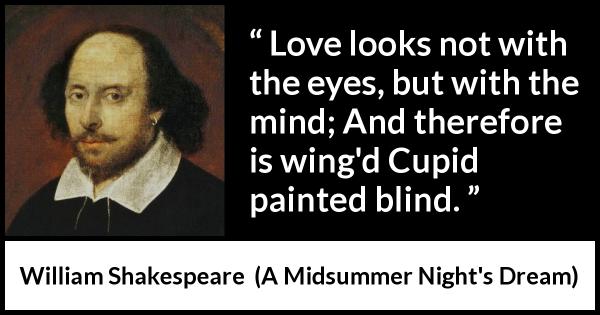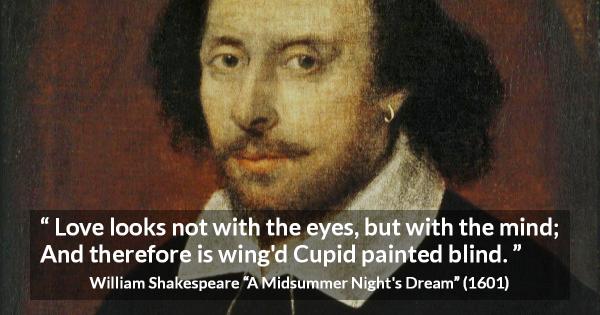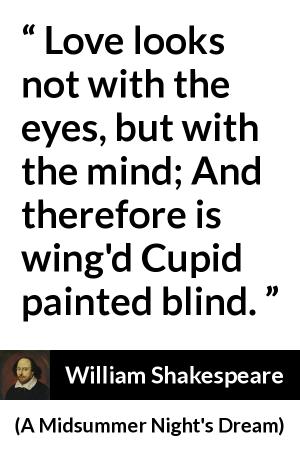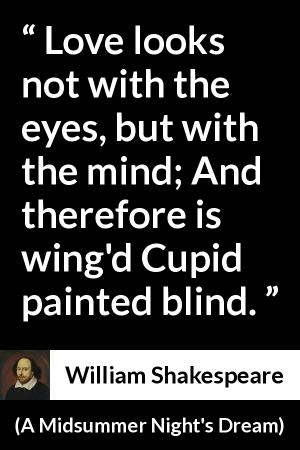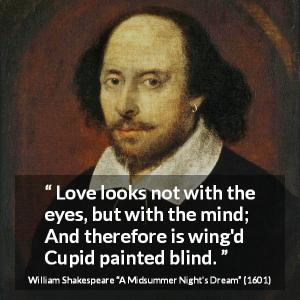“ Love looks not with the eyes, but with the mind; And therefore is wing'd Cupid painted blind. ”
William Shakespeare, A Midsummer Night's Dream (1601). copy citation
| Author | William Shakespeare |
|---|---|
| Source | A Midsummer Night's Dream |
| Topic | love mind eyes |
| Date | 1601 |
| Language | English |
| Reference | A Midsummer Night's Dream, Act I, Scene 1 |
| Note | Written between 1590 and 1597 Helena line |
| Weblink | http://www.gutenberg.org/files/1514/1514-h/1514-h.htm |
Context
“
He will not know what all but he do know. And as he errs, doting on Hermia's eyes, So I, admiring of his qualities. Things base and vile, holding no quantity, Love can transpose to form and dignity. Love looks not with the eyes, but with the mind; And therefore is wing'd Cupid painted blind. Nor hath love's mind of any judgment taste. Wings, and no eyes, figure unheedy haste. And therefore is love said to be a child, Because in choice he is so oft beguil'd. As waggish boys in game themselves forswear,” source
He will not know what all but he do know. And as he errs, doting on Hermia's eyes, So I, admiring of his qualities. Things base and vile, holding no quantity, Love can transpose to form and dignity. Love looks not with the eyes, but with the mind; And therefore is wing'd Cupid painted blind. Nor hath love's mind of any judgment taste. Wings, and no eyes, figure unheedy haste. And therefore is love said to be a child, Because in choice he is so oft beguil'd. As waggish boys in game themselves forswear,” source
Meaning and analysis
Kwize Master
Helena complains that Demetrius rejects her love and is obsessed with Hermia, even though many think she is as beautiful as her rival. She notes that Cupid, the god of love, is always represented as blind, because love does not depend on what the eyes see but on what the mind imagines.
useful
useless
